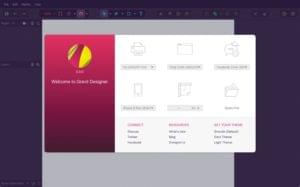Many of us don’t want Google Reader to die but it’s time to face reality. Google is abandoning the service on July 1, 2013 and no amount of pleading will dissuade them. It’s a huge blow for those who depend on the service such as journalists and people who prefer concise news feeds. Google Reader may have been late to the party but it killed the market for commercial and ad-based RSS readers. Fortunately, some survived and a few new players have arrived…
Desktop and Mobile App RSS Readers
There are number of desktop programs, mobile apps and browser add-ons for viewing RSS feeds: Feedly Feedly has probably gained the most from Reader’s demise. It’s available as a Firefox add-on and an app for Android and iOS. However, it currently depends on Google Reader’s back-end so there could be issues on July 1. Pulse Pulse will import Google and other RSS feeds but it doesn’t feel quite like other readers. It’s primarily an iOS and Android app — an early web version is available although I found it a little unstable. RSSOwl RSSOwl is a multi-platform Java-based desktop application. It’s open source and has many powerful features including synchronization facilities. However, synchronization uses the Google Reader API so it may not remain an option much longer. Brief Another Firefox add-on which looks good and imports Google XML subscriptions. However, there’s no synchronization between different installations. Opera If you use Opera’s email client, you’ll be pleased to hear there’s a built-in RSS Reader. Whether this remains following Blink integration is another matter. I’m not keen on OS-based RSS Reader applications: you won’t always be at your PC and cross-device synchronization can be difficult. Fortunately, there are a few…Web-based RSS Readers
The alternatives include: Bloglines Ironically, Bloglines was Google Reader’s biggest causality. The service is back with new owners and offers a similar Google-like summary of headlines and a reasonable mobile experience. InoReader InoReader is the closest to a Google Reader experience, especially since you can sign up using your Google Account and import all feeds and starred articles with a single click. The mobile site works well, but it’s no match for the speed of a native app. InoReader is my favorite web-based application at this time. The Old Reader I’m not sure about the name, but The Old Reader provides a good-looking interface, easy sign-up, feed import and a responsive design for mobile. It’s a beta product and a little buggy but remains usable. Comma Feed A lightweight reader which looks similar — but better — than The Old Reader. It also provides a Google importer and a responsive view for mobile devices. Good Noows Good Noows has been around some time and is more attractive than Bloglines with a variety of feed viewing options. However, it’s a heavier application and doesn’t work well on mobile. NewsBlur NewsBlur’s servers suffered when Google announced Reader’s death but the service seems stable now. The website is supplemented by mobile apps but you’ll need to pay a subscription to unlock some restrictions. MultiPLX MultiPLX is a new (beta) product which offers Google Reader import and list or card views. It looks interesting, but stability may be a concern for a little while.Nah — Any Other Options?
I’m yet to be convinced any of these are as good as Google Reader on multiple devices. Several of the OS-based apps lack synchronization or attempt to present glossy magazine style layouts. Some of the web alternatives are better but whether they have a long-term future remains to be seen. One of my current favorites is Tiny Tiny RSS. It’s an open source PHP and MySQL/PostgreSQL application you need to host yourself. Installation is reasonably straight-forward assuming you’re comfortable configuring databases and cron jobs. It imports Google’s XML file and there are several Android apps which can connect to your server. Tiny Tiny RSS is a reasonable alternative to Google Reader and, even if development ceased, there’s no danger your service will stop working. There’s one chink of light in the gloom following Google Reader’s expiration: it will open the market to more competitors. Companies including Digg are frantically polishing their own RSS Readers in an attempt to entice those from Google. This list may be very different in a few months.Frequently Asked Questions about Google Reader Alternatives
What are some free alternatives to Google Reader?
There are several free alternatives to Google Reader that offer similar features. Some of the most popular ones include Feedly, Inoreader, The Old Reader, and NewsBlur. These platforms allow you to subscribe to your favorite blogs, websites, and news outlets, and read all their updates in one place. They also offer features like tagging, sorting, and sharing, making it easy to manage and organize your feeds.
How do I choose the best Google Reader alternative for me?
Choosing the best Google Reader alternative depends on your specific needs and preferences. Some factors to consider include the platform’s user interface, features, compatibility with your devices, and whether it offers a free or paid version. You might also want to consider the platform’s privacy policy and how it handles your data.
Can I import my Google Reader feeds into these alternatives?
Yes, most Google Reader alternatives allow you to import your feeds. This is usually done by exporting your Google Reader data as an OPML file, which can then be imported into the new platform. The exact process may vary depending on the platform, so it’s best to check their specific instructions.
Are there any Google Reader alternatives that offer offline reading?
Yes, some Google Reader alternatives offer offline reading. This feature allows you to download articles for reading later, even when you don’t have an internet connection. Examples of platforms that offer this feature include Feedly and Inoreader.
How do Google Reader alternatives handle ads?
The handling of ads varies among Google Reader alternatives. Some platforms, like Feedly, offer a paid version that removes ads. Others, like Inoreader, display ads in the free version but offer an ad-free experience for premium users.
Do Google Reader alternatives support RSS feeds?
Yes, all Google Reader alternatives support RSS feeds. This is the primary function of these platforms – to aggregate content from various websites via their RSS feeds.
Can I share articles from these platforms on social media?
Yes, most Google Reader alternatives allow you to share articles on social media. Some platforms even offer built-in social sharing features, making it easy to share content with just a few clicks.
Are there any mobile apps for Google Reader alternatives?
Yes, many Google Reader alternatives offer mobile apps for both iOS and Android. This allows you to read your feeds on the go, from any device.
Can I customize the look and feel of these platforms?
Yes, many Google Reader alternatives allow you to customize the user interface. This can include changing the layout, color scheme, font size, and more.
Do these platforms offer any additional features beyond reading feeds?
Yes, many Google Reader alternatives offer additional features beyond just reading feeds. These can include things like the ability to save articles for later, tag articles for easy searching, and even integrate with other apps and services.
Craig is a freelance UK web consultant who built his first page for IE2.0 in 1995. Since that time he's been advocating standards, accessibility, and best-practice HTML5 techniques. He's created enterprise specifications, websites and online applications for companies and organisations including the UK Parliament, the European Parliament, the Department of Energy & Climate Change, Microsoft, and more. He's written more than 1,000 articles for SitePoint and you can find him @craigbuckler.






